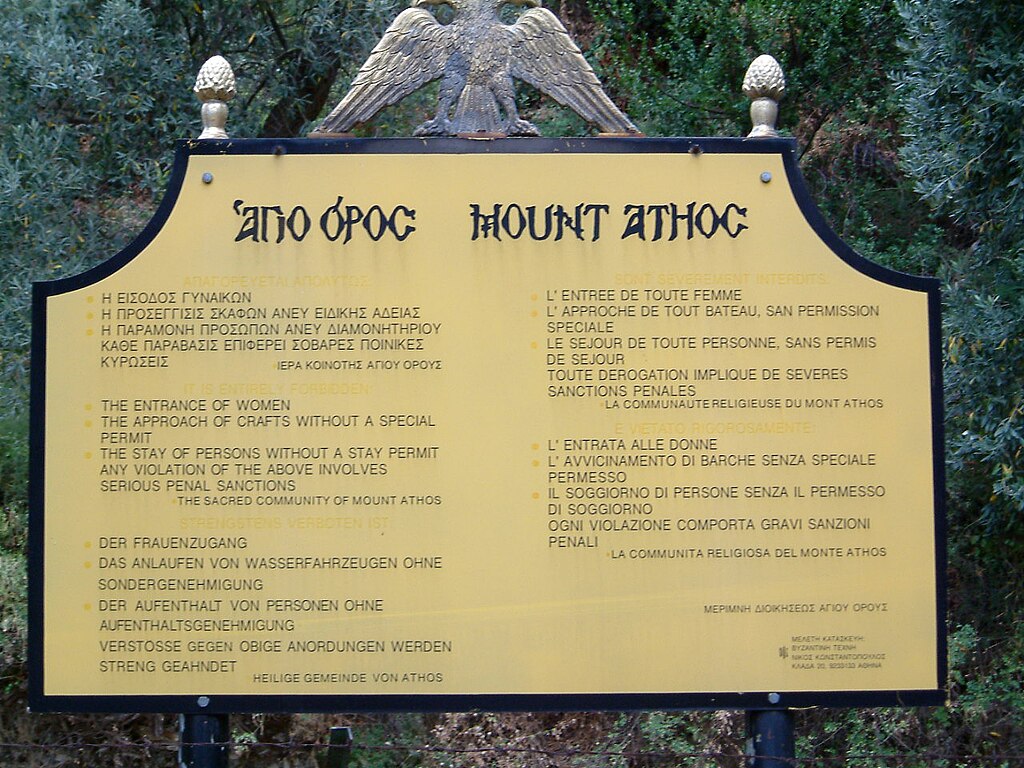Gender legislation threatens to end Mount Athos ban on women
Parliament in Athens votes on gender change law - Orthodox church and monastic government of Athos protest
The monastic government of Mount Athos, the "Iera Epistasia", is concerned about the impact Greece's new gender legislation could have on the traditional ban on women visiting the monastic republic. A revised human right, prepared by the government in Athens, foresees unauthorised definition of gender without regard for the physiological conditions, reported the German Catholic News Agency KNA on Tuesday. Then it will be possible for adults to establish themselves as a man, a woman, or both, without an external gender transformation. In the case of minors, this may be carried out by the guardian or by the parents at the time of birth.
The Orthodox Church of Greece criticizes the project violently. The planned law jeopardized the "sacred institution of the family," it said. For Mount Athos, which the Greek police had hitherto protected from the invasion of women, the monastic government warned that the plan would give a right of visiting to outwardly female persons who declared themselves as men. However, it is still open whether the government of Alexis Tsipras will receive a parliamentary majority for the law. The majority of the nationalist coalition partner of Tsipras' left-wing party, Syriza, the "Independent Greeks" (ANEL), rejects the gender law. However, it finds support in the secular block "Potami" (Electricity), which is otherwise in opposition.
The prohibition of women on the Mount Athos, the Avaton, dates back to the early Middle Ages and is founded on a heavenly direction from Mary to preserve the North Greek peninsula as "her garden" for her alone. In reverse, a prohibition on men is said to have existed there in ancient times around a sanctuary of the virgin forest goddess, Artemis. The Avaton applies not only to girls and women, but to all female creatures. Not even chickens are tolerated at the Athos, the eggs required for Easter are to be imported from abroad. The only exception are the numerous cats. They defend the monasteries and chapels from the plague of snakes and mouses.
The historical foundation of the Avaton was probably the invasion of the Balkan Roman wandering shepherds (Vlachs) with their herds and families around 800, which spread out among the monastic settlements, took away most of the land, and caused many monks a general moratorium. The Avaton, with its expulsion of all female beings from Athos, deprived the Vlachs of the foundations of their presence. Since then there have always been exceptions to the prohibition of entry, especially for Serbian and Russian princesses for short-term pilgrimages.
Source










.jpeg)

Comments